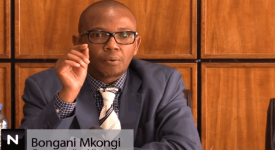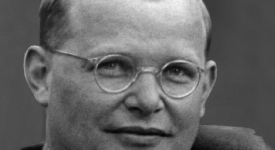Memory collects the past into the gourd of the present. The performance of rememory, both heals and strengthens; it revives hope that tomorrow is going to be better than today. This function of the human ability to rememory, more than just remember, holds survival kits up for the user. Some would call this process a religious ritual. But for Africans, the role of memory in the community is well established. From the griots who, as expert historians, embody socio-cultural, political and spiritual heritages of entire lands to the women in the market place, memory serves vehicle for perpetuating identities, as well as for discovering and disclosing the self.
Toni Morrison has dealt extensively with how African Americans deployed, and today continue to use, memory as a defensive weapon in warding off the impact of slavery and re-enslavement of black peoples in the Americas. In her monograph, Playing in the Dark: Whiteness and the Literary Imagination, Morrison engages how white authors refuse or deny acknowledging any kind of intellectual indebtedness to the influence of black intellectuals, scholars, and thinkers on their scholarly endeavors. Morrison narrates how white imagination reproduces the same kind of race-informed superiority complex. Using Edgar Allan Poe, the American author, poet, literary critic, and to be certain Christian, as example, she writes both powerfully and provocatively of how Poe perpetuated the American “adult discourse” of “silence and evasion” that “have historically ruled American literary discourse,” particularly when it concerns black literary genius. You will guess right to say Poe turns in his grave without any chances of running berserk on cotton fields.
Memory, for Morrison, must be engaged, activated, because it functions perfectly in the removal of current discursive blindfolds which political correctness–or incorrectness–in America produces. Playing in the Dark from an Afrocentric interpretation could be playing with fire. It would mean that white imagination, or any other kind for that matter, which refuses to give due credit or acknowledge the logical humanity of the other is only getting ready to be burnt.
But to avoid the blistering power of memory Morrison advice may be heeded, which is always the case. More recently, Vincent Wimbush, in White Men’s Magic: Scripturalization as Slavery the narrates liberating capabilities of memory. His illustration of the subject centered around the historic Ibo-originated Olaudah Equaino, the African. The rest is history. Equaino’s life amplified the logical contradictions of European slavery-driven capitalism. On fortune’s wings, a White House has already benefited from that dark enterprise. So what happens next? Are black scholars, thinkers and activists merely whining over spilled milk?
the logical contradictions of European slavery-driven capitalism. On fortune’s wings, a White House has already benefited from that dark enterprise. So what happens next? Are black scholars, thinkers and activists merely whining over spilled milk?
Not really. The capacity of memory to reinvent the self, to reprogram social arrangements, or to orchestrate a rebellion cannot be overemphasized. Although seldom inserted in popular narratives, right from the hills of Jerusalem in the Middle of the East to the jungles of the Niger Delta in Africa, memory continues to play a significant role in social and political formations. In situations where certain figures have put themselves up as divine entourages and deputy sheriffs to the office of the supreme invisible, memory is a veritable ingredient in the undermining of such negative energies.
Take the Niger Delta as a good example. The peoples of this region, having endured the collateral devastation on their environment, wastage of their resources, and nearing the point of total annihilation, returned to the strongroom of memory, to dislodge the chains of a African-type Nigerian repression. The younger generation quickly learned that “power emanates from the barrel of guns.” So, with divined luck, but equally taking advantage of their historic inventiveness, these were able to force world community and global actors to stop pretending, and start listening, even if for once, to the agonies of people long forgotten. Internationally, oil prizes spiked. It was like magic. Indeed the effect was both magical and mesmerizing. Meanwhile, ordinary, but excusably naive, citizens who had no inkling that the gas which runs their automobiles comes from, and is literally stolen from, the underneath the ground of a people in the Niger Delta. Those who live in glass houses ought not to throw stones is very useful here.
In another our next article, we will take a look the positive values of living a responsible life using the case of Mr. Newton Amie Igali.








